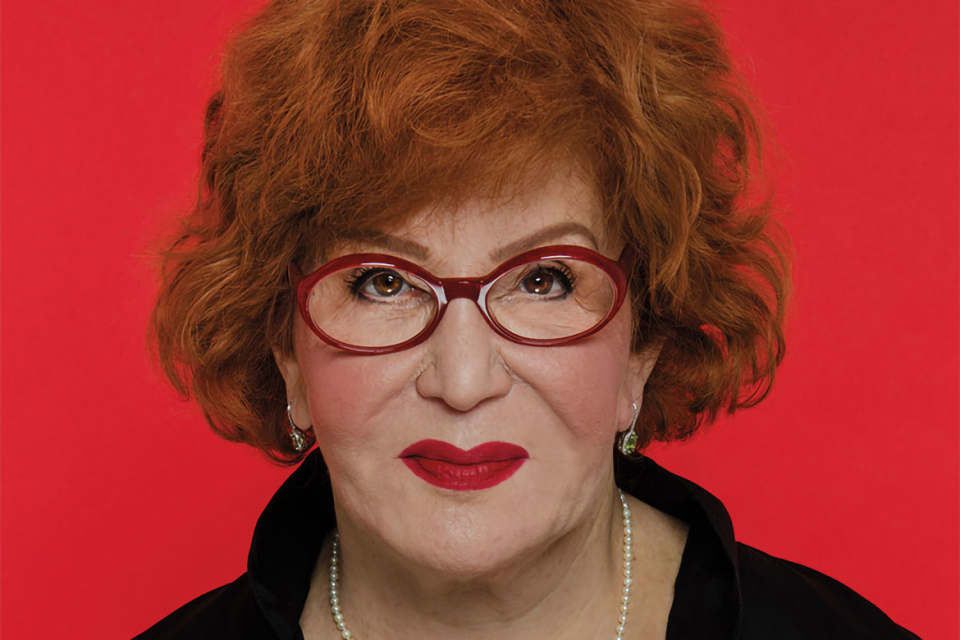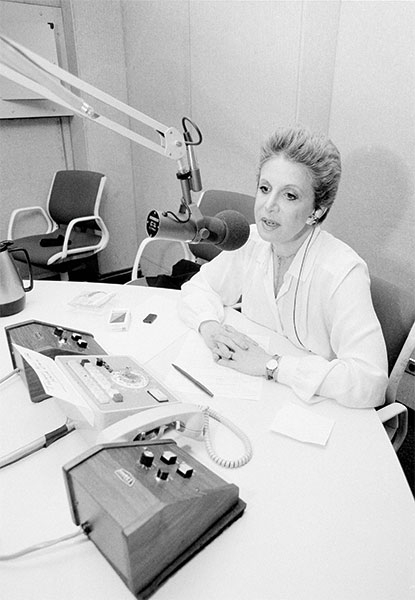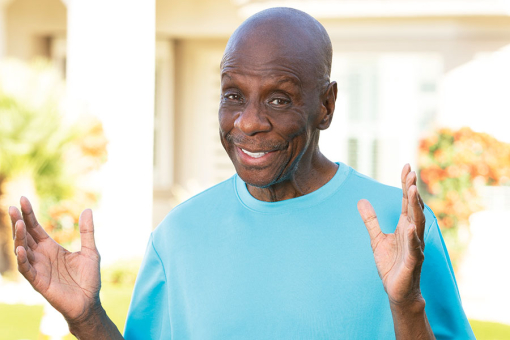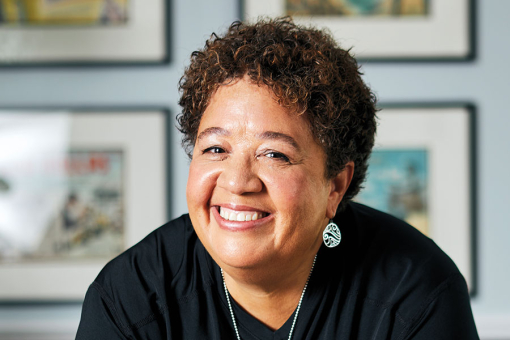Before Oprah and Ellen, Sally Jessy Raphael — in her trademark oversized red glasses — was television's queen of daytime talk.
Long before that, though, she did her talking on radio, answering random questions from callers on a late-night show. No matter the medium, her goal was twofold: to entertain and inform. and she always did things her own way, a policy that often led to her losing her job. by her count, 21 times.
Born in Pennsylvania in 1935, she spent her youth in New York and Puerto Rico, where her father was in the rum exporting business. She earned a bachelor's degree from the brand-new broadcasting department at Columbia University, where she was one of only two women in the program.
After graduation she moved to Puerto Rico with her first husband. There, she put her language skills to use as a news correspondent. After her first marriage ended, she married Karl Soderlund, who subsequently became her manager.
Once Raphael made the permanent move to television, she became known for tackling timely, and touchy, issues. "We were the only show — because there was no Oprah yet — to do an awful lot of instructive personal issues, and women's issues," she says. "I was quite proud of the show, and I could go to work every day liking what I was doing."
She was nominated five times for a Daytime Emmy as Outstanding Talk/Service Show Host, winning in 1989.
Raphael was interviewed in May 2019 by Adrienne Faillace for The Interviews: An Oral History of Television, a program of the Television Academy Foundation. The following is an edited excerpt of their conversation. The entire interview can be screened at TelevisionAcademy.com/Interviews.
Q: What was your first job in broadcasting?
A: I got my first real full-time radio job in Puerto Rico on WHOA, around 1956. I was the morning person five days a week. I was paid two dollars a show. It was very good training. And it was very unusual, because there were no women in radio at that time. Being in Puerto Rico allowed me to be on the air.
I got my first television show in the late '50s, also in Puerto Rico. The cameras were enormous. And the lights were so hot — it would get up to 120 degrees under television lights in those days. And you wore thick brown makeup all over your face. On this show I was the only woman with a bunch of handsome bachelors. It was called What Do Men Want (If Anything?) "If anything" was my parentheses.
Q: Were you comfortable on camera right away?
A: I would say so. My mother had been a dancer, and my grandmother was on radio. So I grew up as a third-generation woman in show business.
Q: Why did you leave Puerto Rico?
A: At that time I was going back and forth to the States. I kept getting fired. I never left a job that had a salary. Never.
In the early '70s, I got a job as the night person at WIOD — Wonderful Isle of Dreams — radio in Miami. One of the things we did on the air was, we called up McDonald's and ordered 30,000 hamburgers. That idea was used by Woody Allen, whom I told the story to, in one of his movies.
Jackie Gleason was living in Miami at that time, doing The Jackie Gleason Show, and he was a regular who called in. Once we went to his house and I played pool with Minnesota Fats. And Tennessee Williams was a regular on the show. He lived in Key West.
Q: And you also worked for wire services at one time?
A: I worked for Reuters and then for A.P. International, and they sent me from Puerto Rico to interview [President] "Papa Doc" Duvalier in Haiti during the time of the Tonton Macoute [Duvalier's paramilitary force, which terrorized the nation]. They said, "Be very careful; the room is bugged." They kept me there waiting and waiting. Finally I got to talk to Papa Doc.
The man was fluent in English, but he only wanted to speak Haitian French. I spoke French [in addition to Spanish and the Creole language Papiamento, plus some German and Italian] but not well enough to be on the air. So the one really good interview that I could have sold anywhere just blew up in my face. But I did get to go to a lot of South American and Central American countries and report on what was going on.
Q: You also hosted a television show, A.M. Miami. Did you have much input on guest selection?
A: No, I frankly didn't care.
Q: Why?
A: You can't produce yourself. I have nothing but bad things to say about men who wear suits who are in charge of radio, network and cable television stations. But I've nothing but good things to say about producers. They do the work. They know their job. I'm not a control freak.
Q: Did you have a preference for working on radio versus television?
A: I always preferred radio. Radio has the theater of the imagination. You tell a story and people imagine that story their own way, with their own characters, their own lighting, their own sets. When I had no guest on the radio, in the middle of the night, I would tell stories and people would imagine what was happening. It held me in good stead, to learn to do that.
Q: You also worked as a primetime news anchor in New York in the 1970s….
A: I was on WPIX, with Paul Bloom, for almost two years. It was a pretty bad experience.
Q: Why was that?
A: They had the idea that if they could make me into a beautiful blonde starlet, looking up to a man, that that would work very well. It didn't work very well.
Q: Had you experienced that before — someone trying to alter your image?
A: Nobody up till that time had tried to make me look a certain way. But then it was, "Can you diet? Can you wear a girdle? Can you grow your hair? Can you make it blonde? Can you get blue contacts?" That wasn't me. It never had been me. It was pretty awful. Eventually Paul told them, "If you fire her, I leave, too," which was amazing. And he did.
Q: How did your radio show Talknet come about?
A: I was in New York looking for a job after WPIX. [My husband] Karl and I owned a restaurant on First Avenue, The Wine Press, and the vice-president of NBC Radio came in for dinner all the time. I eventually got up the moxie to ask him for a job.
He said, "Come see me in the office." I did, and he asked, "What do you want to do?" I said, "Anything you've got." He said, "Come back in a week and I will have found you a job."
When I went back in a week, he had been fired and replaced by a man I didn't know, to whom I told this story. And this man said, "I'll look for a job for you; why don't you come back in a week?" So I went back in a week, and that man had been transferred out of NBC Radio.
Finally we got to a third man, who did give me a job — working all night on radio, answering questions. At first people said, "Who in the heck is she to answer questions?" But that died out because the ratings began to climb. At its high point, I was on 120 percent of America.
How do you get on 120 percent? I was on two stations at the same time, opposite myself. The show became exceedingly popular. People could call in with any question, and I would answer it.
Q: Such as?
A: Well, a gentleman called and asked me how to kiss a woman. I said, "What seems to be the problem?" He was a farmer in the Midwest. He said, "I called you before and you told me how to get a date. So I asked this woman out. But I'm worried about kissing her."
I said, "I think it's a little early. Can you just go out with her a few times? You've never been out with anybody?"
"No."
I said, "Call me back in about two weeks." He did, and I described to him the best way to kiss a woman. And America became obsessed by the farmer who had never kissed a woman. And then he kissed the woman. And the woman fell into his arms. He married her, and the first cow born was called Sally.
Q: What was your advice for the kiss?
A: It was very explicit and very simple. But people really just want to be heard. You can't go wrong in an advice show as long as you resist the temptation to give advice.
Q: When we interviewed Phil Donahue, he told us that he'd heard you on Talknet.
A: Yes, Phil heard the show, and he told Walter Bartlett of Multimedia about me. But at the same time, Burt Dubrow, who was working on [a daily syndicated TV talk show] The Bob Braun Show, said, "Bob has gone away for a week's vacation — use this woman from radio as guest host." And an awful thing happened — they fired Bob and gave me his job.
I tried like hell not to take his job. I was by far the highest paid person on radio at that time. And I didn't want them to fire him. However, I had no control. It was either I take the job or somebody else takes the job. So I took the job, and it was in St. Louis, Missouri. We were on six stations. And that was the beginning of The Sally Show.
Q: What did you want the show to be?
A: I didn't particularly care, as long as I felt we were informing and communicating, as I was doing on the radio — helping people learn more and feel better.
The show started and remained, for quite a while, very informative. We did a mastectomy on camera. We were the only show — because there was no Oprah yet — to do an awful lot of instructive personal issues, and women's issues. I was quite proud of the show and I could go to work every day liking what I was doing.
For a period of time, we did [episodes centered on] physicality. Sally boxed. She wrestled. She roller derby-ed. She drove a 16-wheeler — and by the way, I don't drive a car. I loved doing those things. Then we went through a period of taking on people's prejudices. We fought the Ku Klux Klan. We fought Scientology. And then for a while, we did a show every week in a different town in the United States.
Q: Talk about putting together a panel of guests — how often would you have an expert on?
A: We had a lot of experts. And the show didn't stop when [the episode was over]. These [guests] are human beings — they're brought there; you've used them to showcase a problem. Now make sure they get the kind of help they need. I was spending quite a bit of money in aftercare for the guests. Multimedia insisted on that, and I applauded that.
Q: How did your signature red glasses come about?
A: One day I looked at the teleprompter and couldn't see it as well as I should have. I saw an ad in the newspaper for an eye exam and glasses. So I went to the store and they tried to upsell me, saying, "Do you want to spend a little bit more? Because the only glasses we have at that price are red." So red it was.
Then the red glasses became a thing. At one time people voted on which pair of red glasses I should wear.
Q: What was your relationship like with the studio audience?
A: The show should be their show. If we're trying to educate and inform, then you should be standing there with them. And when they need to talk, you should let them talk. Every question isn't going to be brilliant. Every conversation isn't brilliant in real life. But that [interaction] was Phil Donahue's idea. I can't take credit for that.
Q: Let's talk about a few topics you covered. You did several AIDS-related stories early on.
A: I think we had the first interview of Ryan White [an Indiana teen who contracted AIDS from a blood transfusion and was barred from school]. Ryan was on three times. I had asked a research scientist, prior to his coming on, how do you get AIDS? And he said, "You don't get it by kissing, hugging or touching." But everyone thought you did.
So I made a point of going to Ryan at the end of the show and giving him a kiss and hugging him.
Q: What impact do you think that had?
A: I think a lot of people were scared for me. They thought, "She's going to get AIDS." But education thwarts fear.
Q: You also did several makeover shows….
A: We were the first to really get into makeovers. And it paid off tremendously in ratings. Then the other talk shows caught on. But we had the field to ourselves for a very long time. Those were great — everyone loves the reveal.
Q: Would you ever express your personal views on the show?
A: Very rarely.
Q: What would make you say something?
A: If someone was trying to harm somebody else, I would speak up. But with a news background, you learn to remain neutral. At least in public. If you have the public trust, I don't think you have the right to tell the public that they should think your way.
Q: You had many celebrities on the show over the years — from its early days in St. Louis, and later in New Haven, Connecticut, and finally in New York. Who stands out?
A: My all-time favorite: three months before she died, Audrey Hepburn. She got me interested in UNICEF, so I worked for them in some South American countries. I spoke at her funeral. I believed in her and what she did. She was not only one of the most beautiful women in the world, she was one of the most perfect. …
And Cher. God bless Cher. You could always get an audience, even if it was a Cher lookalike. The lady is magic. And she's extremely nice.
Q: In the late '80s and early '90s, several competitors debuted — Geraldo, The Maury Povich Show, The Jenny Jones Show, The Jerry Springer Show. What was that like for you?
A: I couldn't have cared less. I did what I was doing. The more people who do good broadcasting, the better it is for us all. But broadcasting declines when people try to exploit, dumb it down or halve the cost of the production. You can't halve the cost of quality. You can't go into Tiffany and say, "Give me your best diamond — I only want to pay half."
Q: After 19 years, how did the show come to an end in 2002?
A: The show was sold over and over again. It was sold to Gannett and eventually wound up in the hands of NBC Universal, who have to be the worst bosses I've ever worked for. They're the reason the show is over. I don't think it's great broadcasting to take people who are less educated than you, or a different color than you and make them appear foolish.
We had done a show on reeducating teenagers about bad behavior — why it's bad for your parents, for mankind and for you. That show rated well, and then we had to do that show over and over and over again ["Teens Gone Wild Boot Camp"]. That was the beginning of the end.
Years later I went to see NBC Universal and pitched, "Let me find those errant teenagers. Let's show part of the old show and then let's sit with them today and see what has happened to their lives." They thought it was the worst idea they'd ever heard. I still think that would have worked.
Q: So was the show canceled?
A: NBC Universal had told me the show was being renewed. So I went to our 250 employees and told them the show was being renewed. People bought houses. People got pregnant. People put their kids in school. And one morning I went into the office and immediately knew something was wrong, because the suits were all sitting around.
They said the ratings were on a slide down, so they'd decided not to continue the show. That took my breath away. I had just told 250 people that they had a job. I've worked since I was six years old. Not being able to work is a killer. However, life kills you also. My husband has Alzheimer's and Parkinson's, and I'm his primary caregiver. And if that isn't a job, I don't know what is.
Q: What is your proudest career achievement?
A: Every once in a while somebody will come up to me and say, "I didn't know about AIDS or breast cancer, and I learned something from you that saved my life." You can't ask for better than that.
This article originally appeared in emmy magazine, Issue #1, 2020














